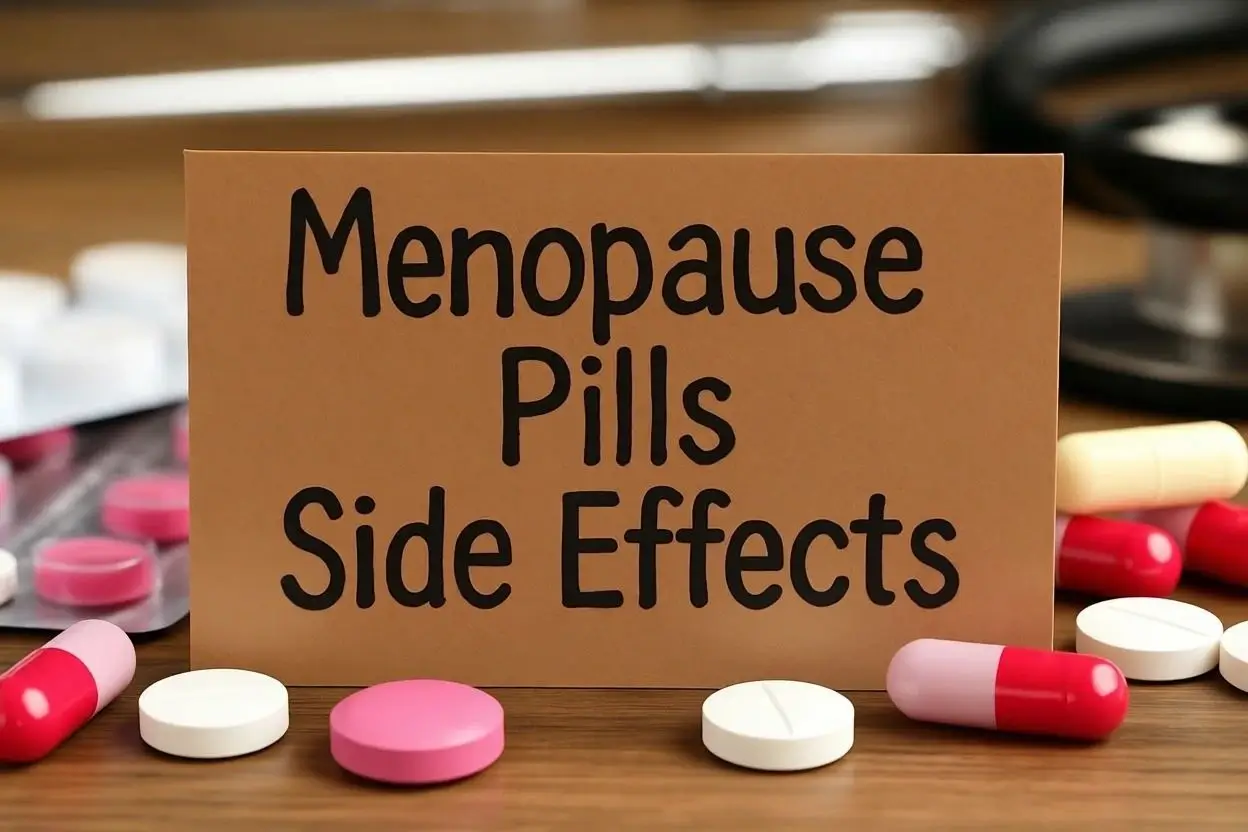

“Menopause isn’t the end of your sexual life; it’s a shift, a new chapter filled with possibility, intimacy, and self-discovery.”
For many women, the idea of sex after menopause can feel intimidating. Society rarely talks about it, and medical advice often focuses on hot flashes, mood swings, or bone health—but leaves the intimate questions unanswered. Yet, menopause doesn’t erase desire, passion, or the capacity for fulfilling sex. It simply changes the way women experience it.
Here, we explore 9 truths about sex for women after menopause—what science says, what women experience, and how you can reclaim your sexual confidence.
Many women assume that menopause kills libido, but research shows that while estrogen drops can change sexual desire, it doesn’t vanish. Libido may shift from being spontaneous to being more responsive to emotional and physical cues. Some women even report feeling liberated, free from the stress of pregnancy or societal expectations.
Tip: Explore your desires without pressure. Focus on what feels pleasurable, not what feels expected. It could be a quiet, lingering touch or a passionate evening—both are valid.
Decreased estrogen can lead to vaginal dryness, thinning tissue, and reduced elasticity, which may make sex uncomfortable. These changes are common but not irreversible.
Lubricants and moisturizers: Water-based lubricants or vaginal moisturizers can dramatically improve comfort.
Low-dose vaginal estrogen: Creams, rings, or tablets restore tissue health safely for most women.
Pelvic floor exercises: Strengthen vaginal muscles and enhance blood flow, improving sensation.
Truth: Vaginal changes aren’t a barrier—they’re a sign to adapt your approach. Many women find that experimenting with timing, foreplay, or different positions makes intimacy more comfortable and pleasurable than ever before.
Some women notice that orgasms feel different after menopause. They may take longer to achieve or feel more localized, but intensity often remains. Interestingly, research indicates that many post-menopausal women feel more in tune with their bodies, leading to more meaningful sexual experiences.
Tip: Communication with your partner about timing, touch, and preferences is crucial. Prioritizing pleasure over performance often leads to deeper, more satisfying experiences.
While hormones play a role, psychological and emotional factors heavily influence desire. Stress, body image, fatigue, and relationship dynamics can affect sexual interest more than menopause itself.
Studies show that women who engage in emotional intimacy—sharing feelings, expressing affection, laughing together—report higher sexual satisfaction. This means that rekindling desire may require emotional work, not just hormonal adjustments.
Truth: Emotional connection is as vital as physical readiness for enjoyable sex after menopause.
Menopause often coincides with chronic health conditions such as diabetes, hypertension, and thyroid disorders, which may impact sexual function. Medications, including antidepressants or blood pressure drugs, can also reduce arousal or desire.
Tip: Addressing these issues with your doctor can dramatically improve sexual experience. Many treatments from adjusting medications to introducing hormone therapy—are safe and effective.
Sex is more than pleasure—it’s good for your body and mind. Multiple studies link sexual activity with:
Improved mood and reduced stress
Enhanced cardiovascular health
Stronger pelvic floor muscles
Better sleep and overall quality of life
For post-menopausal women, sexual activity also strengthens intimacy with partners, enhancing emotional well-being. Truth: Engaging in sex is not indulgence—it’s self-care.
Cultural narratives suggest that sexual desire fades after 50, but surveys show otherwise. Women in their 50s, 60s, and even 70s report healthy sexual activity and enjoyment. The key lies in adapting to body changes, communicating openly, and redefining pleasure on your own terms.
Tip: Let go of comparisons to younger selves or societal norms. Desire after menopause is valid, unique, and deserves nurturing.
For many women, intimacy after menopause shifts from performance-focused to connection-focused. Touch, laughter, playfulness, and conversation become central to sexual satisfaction.
Studies have shown that women who maintain emotional closeness with their partners experience more fulfilling sexual lives, even when hormonal changes affect physical arousal. Deep emotional intimacy can make sex feel more rewarding, sensual, and meaningful.
Tip: Cultivate closeness daily—small gestures like holding hands, sharing a story, or cuddling on the couch can strengthen desire and sexual satisfaction.
The most important truth about sex for women after menopause is that desire, pleasure, and intimacy are your birth-right at any age. Many women report that sexual confidence actually grows after menopause, as fears about pregnancy fade and self-awareness deepens.
Ways to reclaim sexual pleasure include:
Experimenting with different forms of touch or intimacy
Using lubricants or vaginal moisturizers to enhance comfort
Considering professional help for persistent discomfort or low desire
Exploring fantasies, toys, or new experiences with a trusted partner
Truth: Menopause is not a limitation—it’s an opportunity to explore sexual freedom in a way that suits you.
For too long, conversations about sex and menopause have been hushed, leaving women feeling isolated and misunderstood. But embracing sexual life after menopause is not only possible—it’s empowering. It’s a chance to rediscover your body, prioritize your pleasure, and nurture emotional intimacy.
Women often find that post-menopause, their sexual experiences are richer. They are less constrained by societal expectations, more attuned to their bodies, and able to communicate desires more clearly. With the right mindset, resources, and support, sex after menopause can be deeply fulfilling.
Final Truth: Your sexuality doesn’t retire—it evolves. Whether it’s playful, tender, passionate, or experimental, your sexual life can thrive well into your post-menopausal years.
Yes. Some women report heightened sexual sensitivity after menopause due to changes in blood flow, nerve function, and reduced anxiety about pregnancy. While hormone drops can reduce lubrication, many women experience more focused and intense sensations during touch or intimacy.
Menopause can shift the type of sexual activities women find pleasurable. Many women find that kissing, massage, oral sex, mutual masturbation, and sensual touch become more satisfying than penetration alone, partly due to vaginal changes and heightened focus on emotional intimacy.
Yes. Research suggests that some women experience an evolution in their sexual imagination post-menopause. With life responsibilities changing, fewer inhibitions, and shifts in hormone balance, women may explore new fantasies or sexual preferences they didn’t prioritize earlier.
Evidence shows that while some women may experience less frequent orgasms during partnered sex due to vaginal changes or discomfort, solo sexual activity (masturbation) often results in more reliable and satisfying orgasms, as women can control timing, pressure, and stimulation.
Absolutely. Strengthening pelvic floor muscles through Kegel exercises or specialized physiotherapy can improve blood flow, arousal, and orgasm intensity. This is a powerful, often overlooked tool for sexual satisfaction post-menopause.



 ×
×

